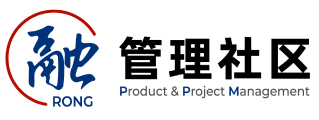从质量负责人的岗位职责谈质量管理
 76 2024-12-05
76 2024-12-05
我们非常重视原创文章,为尊重知识产权并避免潜在的版权问题,我们在此提供文章的摘要供您初步了解。如果您想要查阅更为详尽的内容,访问作者的公众号页面获取完整文章。
Summary of the Article
The article discusses the responsibilities of a quality manager in a manufacturing setting, emphasizing the importance of quality management over technical activities. The quality manager's role encompasses active participation in all product quality and safety-related activities, including quality assurance (QA) and quality control (QC).
Quality Assurance (QA)
As a QA, the quality manager must plan, establish, implement, maintain, and improve various aspects of the quality system. These include the quality strategy, quality policy, compliance, change control procedures, validation processes, quality tool implementation, training programs related to quality and product safety, and coordination with production and procurement to address supplier quality deviations. Additionally, the manager is responsible for customer complaint investigations, communication, reporting, and maintaining consistency with corporate quality policies.
Quality Control (QC)
As a QC, the quality manager is tasked with managing QC laboratory resources to ensure timely inspection of raw materials, semi-finished products, finished goods, and consumables. The manager also provides inspection methods to support production lines to prevent quality deviations, ensuring that QC lab analysis methods meet standards.
The essence of quality, as discussed in the article, is management rather than a technical activity. It is articulated through three dimensions: physical (product/service quality), logical (process quality), and human (work quality). Quality management involves training qualified personnel and using validated processes, instructions, and calibrated equipment to consistently produce products that meet registration and specific requirements. The article concludes that quality arises from management, which includes setting quality policies and objectives and achieving them through quality planning, assurance, control, and improvement.
Quality Control and Quality Assurance
The article distinguishes between quality control and assurance. Quality control is part of quality management focused on meeting quality requirements and providing data for system "controllability." It shares 20 aspects of quality control management. Quality assurance is devoted to providing confidence that quality requirements will be fulfilled, encompassing planning, establishing, implementing, maintaining, and improving the quality management system and its effectiveness and performance, among other things, sharing 24 points of quality assurance.
Lastly, the article emphasizes that everyone in the organization is responsible for quality, with the top management determining strategy and direction, the middle management allocating tasks, and the execution layer ensuring tasks are completed correctly and on time.
Conclusion
In conclusion, the article reiterates that the essence of quality is management. Quality management involves managing processes according to established requirements. The author also provides information on the training content offered by the management system family and clarifies availability for contact and assistance.
想要了解更多内容?













